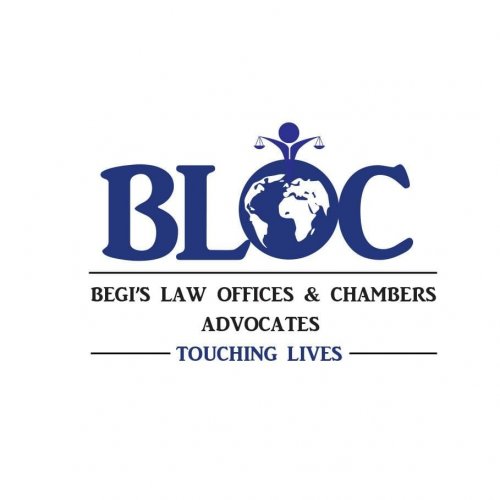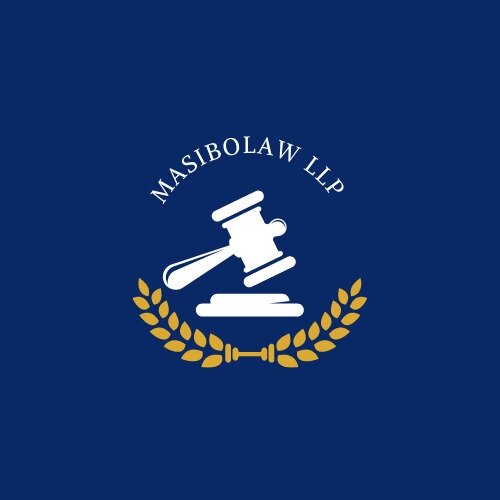About Accounting & Auditing Law in Kenya
Accounting and auditing in Kenya form the backbone of the financial reporting landscape, governed by both national legislation and internationally recognized standards. The Kenya Accountants and Secretaries National Examinations Board (KASNEB) plays a key role in setting the standards for accounting qualifications, while the Institute of Certified Public Accountants of Kenya (ICPAK) oversees the practice of accountancy, including auditing. Auditors in Kenya must adhere to the standards defined by the ICPAK and adopt International Financial Reporting Standards (IFRS) and International Standards on Auditing (ISA) in their practices. The regulatory framework ensures transparency, accountability, and reliability in financial reporting, thus instilling trust in stakeholders and investors.
Why You May Need a Lawyer
While engaging in accounting and auditing, individuals and businesses may encounter complex legal issues that require professional legal guidance. Common situations include disputes over financial reports, compliance with taxation laws, audits by regulatory bodies, fraud investigations, and mergers and acquisitions requiring thorough due diligence. Additionally, inappropriate audit practices or failure to comply with IFRS or ISA standards may lead to legal challenges. A lawyer specialized in accounting and auditing can provide crucial assistance in navigating these issues, ensuring compliance, and protecting clients against liabilities.
Local Laws Overview
The Accounting and Auditing sector in Kenya is primarily guided by the Accountants Act, 2008, which sets the foundational framework for professional standards and practices. Another significant piece of legislation is the Companies Act, which outlines directors' responsibilities in maintaining accurate financial records and conducting audits. The Public Audit Act, 2015 governs how public resources should be audited, ensuring accountability in governmental expenditures. These pieces of legislation, along with the directives from ICPAK, require adherence to best practices in financial reporting and auditing, ensuring transparency and preventing financial malpractices.
Frequently Asked Questions
What qualifications must an auditor have in Kenya?
An auditor in Kenya must be certified by the Institute of Certified Public Accountants of Kenya (ICPAK) and typically holds a CPA (K) qualification from KASNEB.
Are international financial reporting standards (IFRS) mandatory in Kenya?
Yes, IFRS is mandatory for public listed companies and recommended for large private companies to ensure consistency and integrity in financial reporting.
What is the role of ICPAK in auditing?
ICPAK is responsible for regulating the accounting profession, ensuring compliance with international standards, providing guidance, and maintaining the quality of the auditing profession in Kenya.
How often must a company be audited in Kenya?
In Kenya, all public companies are required to have their financial statements audited annually. This also applies to other categories of companies as stipulated in the Companies Act.
Can a company use any auditor for their audits?
No, companies must engage auditors who are registered and in good standing with ICPAK, ensuring they possess the necessary qualifications and adhere to the regulatory standards.
What should I do if I suspect financial irregularities in my company?
If you suspect financial anomalies, it is advisable to consult an independent auditor or a legal professional who specializes in forensic accounting to investigate the matter further.
How does VAT affect financial reporting in Kenya?
VAT must be accurately accounted for in the financial reports, and companies should ensure compliance with the Kenyan Revenue Authority's (KRA) requirements regarding VAT reporting and payment.
What penalties exist for non-compliance with auditing standards in Kenya?
Penalties range from fines and sanctions by ICPAK to revocation of auditing licenses, in addition to possible legal repercussions for severe violations.
Do small businesses need to conduct audits?
While small businesses are not mandated by law to conduct audits, they may benefit from regular financial reviews to ensure accuracy and foster consumer trust.
What legal recourse is available for audit malpractice?
Affected companies can lodge complaints with ICPAK, seek remedy through the courts, or pursue arbitration if malpractice is suspected in audits.
Additional Resources
For further assistance and resources, consider reaching out to:
- The Institute of Certified Public Accountants of Kenya (ICPAK) - for professional guidance and standards.
- Kenya Accountants and Secretaries National Examinations Board (KASNEB) - for education and qualification standards.
- Kenya Revenue Authority (KRA) - for tax-related inquiries and compliance.
- Central Bank of Kenya - regarding financial regulations and banking standards.
Next Steps
If you require legal assistance in the field of accounting and auditing, consider the following steps:
- Identify the specific nature of your legal issue, be it compliance, audit disputes, or financial irregularities.
- Consult with a lawyer or legal firm that specializes in accounting and auditing law to understand your rights and obligations.
- Gather all necessary documentation related to your inquiry or issue to enable comprehensive legal assessment.
- Ensure your chosen legal representative is familiar with Kenyan financial regulations and has a good record in similar cases.
- Review any advice given and consider your options, whether it involves litigation, negotiation, or mediation.
Lawzana helps you find the best lawyers and law firms in Kenya through a curated and pre-screened list of qualified legal professionals. Our platform offers rankings and detailed profiles of attorneys and law firms, allowing you to compare based on practice areas, including Accounting & Auditing, experience, and client feedback.
Each profile includes a description of the firm's areas of practice, client reviews, team members and partners, year of establishment, spoken languages, office locations, contact information, social media presence, and any published articles or resources. Most firms on our platform speak English and are experienced in both local and international legal matters.
Get a quote from top-rated law firms in Kenya — quickly, securely, and without unnecessary hassle.
Disclaimer:
The information provided on this page is for general informational purposes only and does not constitute legal advice. While we strive to ensure the accuracy and relevance of the content, legal information may change over time, and interpretations of the law can vary. You should always consult with a qualified legal professional for advice specific to your situation.
We disclaim all liability for actions taken or not taken based on the content of this page. If you believe any information is incorrect or outdated, please contact us, and we will review and update it where appropriate.














